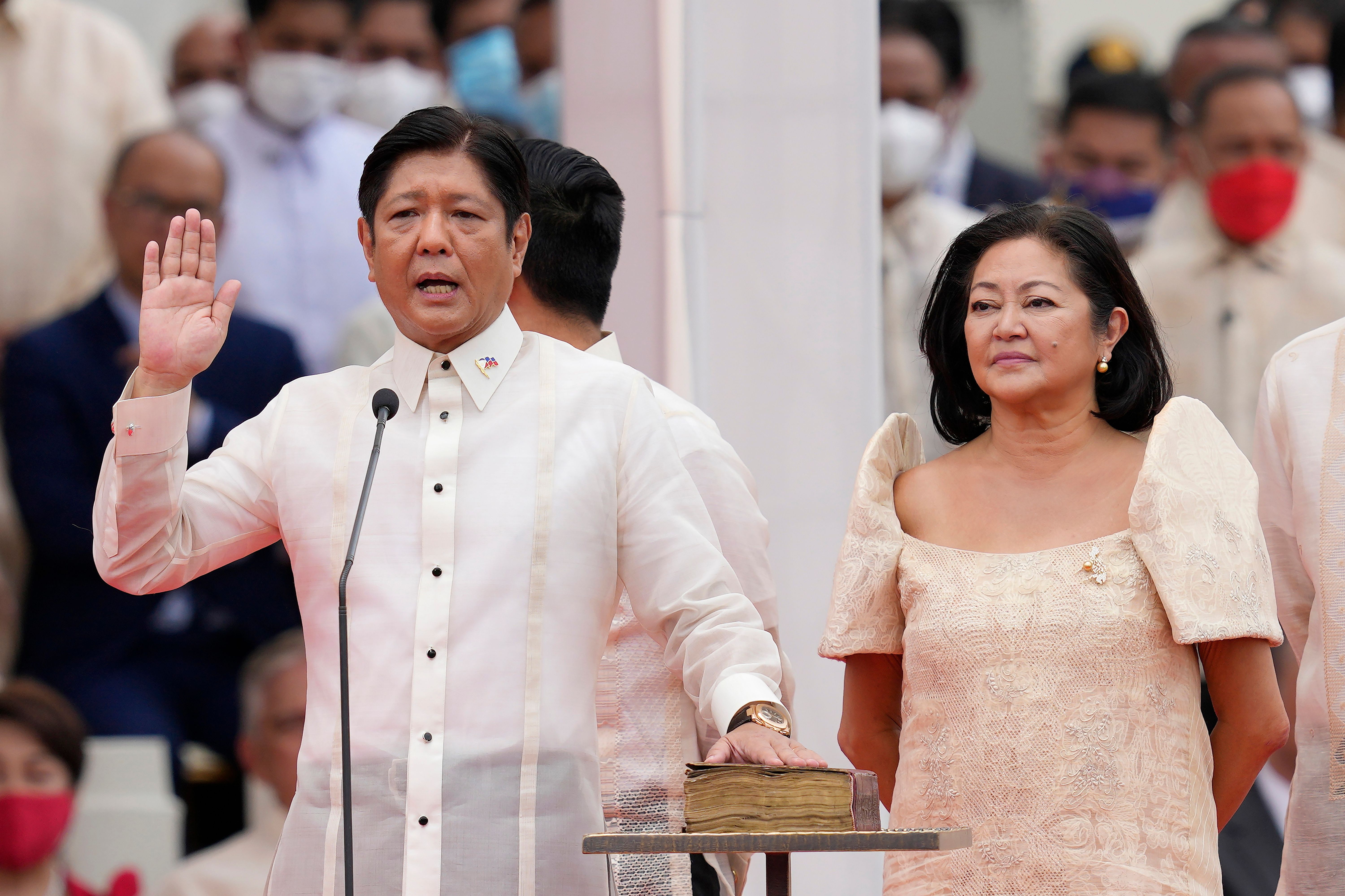Marcos, Ferdinand, Jr. (1957-…), was elected president of the Philippines, an island nation in the southwest Pacific Ocean, in 2022. Marcos has served in the Philippine House of Representatives and Senate and as a provincial governor. He is widely known by his childhood nickname, Bongbong. 
Ferdinand Romualdez Marcos was born in Manila, Philippines, on Sept. 13, 1957. His father, Ferdinand Edralin Marcos, was representative for the second district of Ilocos Norte when he was born. The elder Marcos served as president of the Philippines from 1965 to 1986. He declared martial law in the Philippines in 1972. He restricted political parties, labor unions, and other groups that opposed the government. In 1973, the Philippines adopted a constitution that gave him broad powers as both president and prime minister. In 1978, Marcos took the title of prime minister while remaining president. During this time, young Ferdinand was studying in England, first at boarding school and then at Oxford University. He later enrolled in a master of business administration program at the University of Pennsylvania.
The younger Marcos was elected vice governor of Ilocos Norte in 1980. In 1981, the elder Marcos ended martial law, leading to his replacement as prime minister. He was reelected president in an election widely regarded as rigged. The younger Marcos served as vice governor of Ilocos Norte until 1983, when he became governor after his aunt resigned from that role. He held the position until his family fled the country amid widespread protests following the presidential election of February 1986. Marcos’s political party was accused of widespread election fraud in the election. The Marcos family fled to Hawaii, where the elder Marcos died three years later. After his death, President Corazon Aquino allowed members of the Marcos family to return to the Philippines. Marcos returned to the Philippines in 1991, running for and winning a position in the Philippine House of Representatives.
Marcos was reelected governor of Ilocos Norte in 1998. He served in the role for three terms until 2007. In 2007, Marcos was appointed deputy minority leader in the House of Representatives, after running unopposed for a second term. In 2010, he was elected to the Senate. Marcos faced several lawsuits from 2014 to 2016 for plundering. Later, in 2016, he ran unsuccessfully for vice president of the Philippines.
In October 2021, Marcos announced his plan to run for president of the Philippines through the political party Partido Federal ng Pilipinas. Several officials filed petitions against his presidential bid, with the majority focusing on his 1995 conviction for not filing tax returns. Critics claimed that he downplayed or denied the abuses that occurred during his father’s rule of the country. Marcos was elected president in May 2022.
